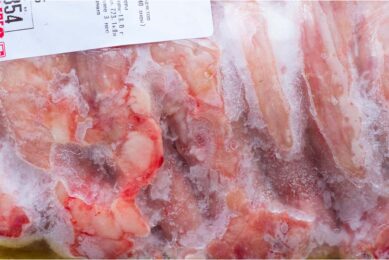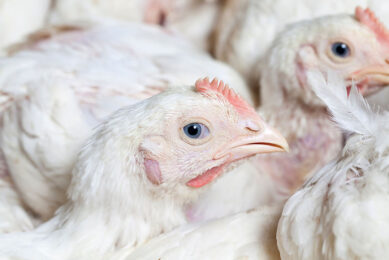South African listeriosis outbreak source identified

There have been calls for an overhaul of South Africa’s food safety legislation in light of a listeriosis outbreak in the country that has claimed the lives of 183 people to date.
In addition, more than 1,000 people are thought to have been affected by the outbreak, which has now been traced to a chilled meat production facility.
Source
South Africa’s health minister Aaron Motsoaledi said last week that he was confident that the government had found the source of what is the world’s largest listeriosis outbreak to date.
Testing carried out by advisors from the World Health Organization in Geneva found Listeria monocytogenes in over the 30% of the environmental samples collected from the Enterprise factory in Polokwane, which is owned by Tiger Brands and produces a range of ready-to-eat chilled meats.
Whole genome sequencing analysis performed at the factory confirmed the outbreak strain ST6 in at least 16 environmental samples.
Listeria was also traced to another Enterprise facility in Germiston and a Rainbow chicken facility in the Free State.
The minister added that while polony was a definite source, other products, including a range of sausages not typically cooked could also be affected due to the risk of cross-contamination. He ordered a full recall of implicated meat products.
Overhaul
In light of the scandal, a leading academic has called for an overhaul of South Africa’s food safety framework.
Lise Korsten said the outbreak had shown that South Africa was ill-prepared for such a devastating food safety outbreak, and perhaps reflected weaknesses in the whole food system.
Prof Korsten, who is co-director at the Centre of Excellence in Food Security at the University of Pretoria, said there were several problems. “Pieces of legislation that manage how food safety is handled remain outdated. It means that the systems in place are inadequate. This includes detecting and verifying potential problems.
“On top of this there is a critical shortage of regulators, inspectors, laboratory personnel, scientists and auditors,” she told South Africa’s Conversation.
Prof Korsten said the industry had relied on self-regulation in the absence of an effective regulatory system with product recall uncommon despite being a requirement in food safety systems.
She said South Africa should consider establishing a national food safety authority, adding that without one there was no central coordinated point dealing with import, export and local food control to protect consumers.
Having a national food safety authority would also mean that technical experts in food science, food microbiology, plant pathology and animal science could be used more effectively.
Poultry concerns
There are concerns in South Africa that imports of mechanically deboned meat (MDM) from Brazilian poultry company BRF SA need to be investigated. The imported paste is used in processed meats including polony, viennas and other sausages.
The South African Poultry Association said: “We would like the Department of Agriculture, Forestry and Fisheries to determine whether BRF is a supplier of MDM to South Africa, and if so how many thousand tons are imported every month from this company.
“We would also like the department to establish from the Brazilian authorities whether the food safety tests that BRF is alleged to have evaded included tests for listeria.”
Vigilance
Meanwhile, the National Institute for Communicable Diseases said health care workers were being urged to continue being vigilant in looking out for new cases as people who have consumed implicated processed meat products over the past few weeks may continue to present with listeriosis.
Namibia reported this week its first case – a 41 year old man is being treated in a hospital in the capital Windhoek. Namibia has banned South African imports of processed meat products along with Botswana, Malawi, Kenya, Mozambique, Swaziland, Zambia and Zimbabwe.
Join 31,000+ subscribers
Subscribe to our newsletter to stay updated about all the need-to-know content in the poultry sector, three times a week. Beheer
Beheer








 WP Admin
WP Admin  Bewerk bericht
Bewerk bericht